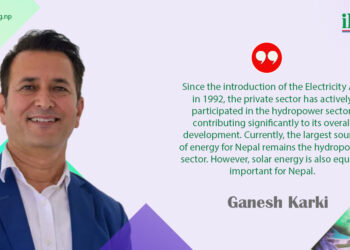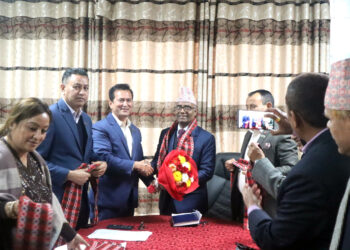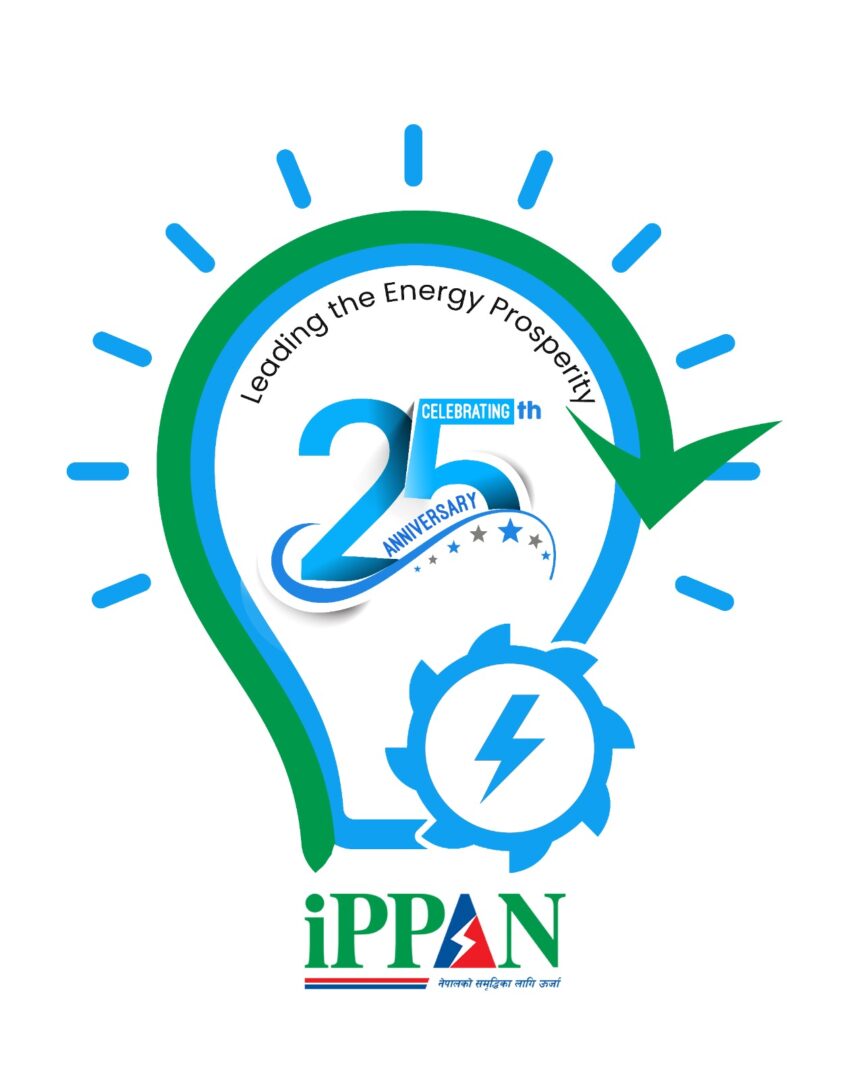IPPAN, the Independent Power Producers Association of Nepal, was established 25 years ago on January 17, 2001 (Magh 4, 2057) with the objective of promoting the development and growth of Nepal’s energy sector through active participation of the private sector. Commencing with eight members, IPPAN currently encompasses 450 corporate and 50 associate members. This organization has been continuously advocating for necessary policy debates for the development of the energy sector and providing suggestions to the government. IPPAN has been organizing various national and international conferences and seminars to create an investment-friendly environment, modify power development policies, rules, and laws according to current needs, and increase local and foreign investor participation and attraction in this area.
As the private sector has become the main partner in generation. IPPAN is working to create an investment-friendly environment through coordination, cooperation, and facilitation with the government for the development of hydropower projects and to provide policy suggestions. Although the Act was passed in 2049, the commercial production of hydroelectric power from the private sector only began in 2057. At that time, Nepal’s power generation capacity was only 250 MW. Currently, Nepal has an electricity generation capacity of 3179 MW, of which 2495.61 MW or 78.50 percent has been produced by the private sector and 683.39 MW or 21.5 percent has been produced by the government sector.
Currently, there are a total of 292 hydro and solar projects with a capacity of 2818.986 MW in the construction and operational phase. Additionally, 123 projects with a capacity of 3649.012 MW are in the process of applying for survey licenses. Furthermore, there are 130 projects with a capacity of 9007.558 MW that have survey licenses, and 101 projects with a capacity of 10725.805 MW are in the process of applying for construction licenses. The government of Nepal has already signed a long-term energy agreement with neighboring India to export 10,000 megawatts of electricity within the next 10 years, while the government of Bangladesh has also planned to import 9,000 megawatts of electricity from Nepal within the next 15 years. For this, the Nepal government expects the contribution of the private sector as the main partner. Therefore, the role of IPPAN is increasing day by day in order to achieve the goals of the government by organizing the private sector.
The construction of energy projects has not only produced electricity but has also greatly contributed to the economic and social development of Nepal’s corners and remote areas. So far, 48 lakh people have got direct employment from the completed projects, but only thousands of people have been employed during the period of production and operation. Energy Projects has so far constructed 3300 km of roads and 350 km of tunnels. Apart from this, the construction of 1100 meters of tunnel has also been completed. So far, the hydropower project has built 140 health centers, 153 schools, 95 water supply projects, and 45 irrigation projects at the local level. Also, the energy project has increased many economic activities in the village, resulting in increased investment in cement and rods in the country and the establishment of more industries. It has also created great opportunities for construction, consulting, and engineering businesses in the country.







